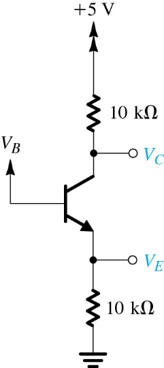Microelectronic Circuits, 8th Edition Errata
Feel free to report additional suspected errors in the comments below. Note, some may already be corrected in your version of the text, particularly if you have the eBook.
| Section | Page No. | Figure, Exercise, Example, Problem, Equation Reference | Original | Corrected |
|---|---|---|---|---|
| 1.4.8 | 23 | Exercise 1.11 | Ans. 120 mW; 15% | Ans. 102 mW; 15% |
| Chapter 1, Problems | 52 | Problem 1.52 | … voltage gain vo/vs | … voltage gain vL/vs |
| Chapter 1, Problems | 53 | Figure P1.62 | Right side (output) negative terminal is floating | Right side (output) negative terminal is connected to the left side (input) negative terminal, ground |
| 2.1.3 | 63 | Figure E2.3 | Printing error: two overlapping dependent sources on the right, printed right on top of each other | Eliminate one of the overlapping dependent sources. (Already corrected in the eBook.) |
| 2.2.1 | 66 | VE 2.1 | … square wave with levels of 0 V and 1 V … | … square wave with levels of 0 V and -1 V … |
| Chapter 2, Problems | 122 | Problem 2.34(c) | If RL is varied in the range 100 Ω to 500 kΩ, … | If RL is varied in the range 100 Ω to 500 Ω, … |
| Chapter 6, Problems | 361 | Problem 6.51, Fig. P6.51 | eBook only: The wrong figure appears |  |
| 7.4.1 | 452 | Example 7.11 | The equation to solve for RS: RS = VS/RS = 5/0.5 = … | RS = VS/ID = 5/0.5 = … |
| 8.4.1 | 530 | Bottom of page: … thus, we can use the source absorption theorem (Appendix C) … | … thus, we can use the source absorption theorem (Appendix D) … | |
| 13.1.4 | 945 | Exercise D13.4 | … of the op amp we analyzed in Chapter 9 (see Example 9.6). | … of the op amp in Figs. 13.1 and 13.2. |
| 13.1.4 | 945 | Exercise D13.4 | Recall from the results of Example 9.6 … | Assume … |
| 13.2.3 | 960 | Top of the page: … given by Eq. (8.97), | … given by Eq. (8.96), | |
| 13.2.4 | 961 | The start of section: From Section 10.5, we know … | From Section 10.4, we know … | |
| 13.3.2 | 975 | Example 13.3 | Thus Ro9 can be found using Eq. (8.70), | Thus, Ro9 can be found using Eq. (8.68), |
Appendix L – Answers to Selected Problems & Dropdown Answers in the eBook
These errors also appear in some eBook in the “hidden” (dropdown) answers.
| Problem No. | Original | Corrected |
|---|---|---|
| 1.3(b) | R = 50 k, P = 20 mW | R = 50 Ω, P = 20 mW |
| 1.3(c) | I = 100 mA, R = 10 k | I = 100 mA, R = 10 Ω |
| 1.19 | 2 V | 4.25 V |
| 1.23(b) | (717 + j450) Ω | (717 – j450) Ω |
| 1.30(a) | 2%; 9% | 0.2%; 9% |
| 1.39 | 0; 101; 1101; 10000; 111111 | 0; 101; 1101; 100000; 111111 |
| 1.59 | 4.95 A/A; 13.9 dB; 4.9 V/V; 13.8 dB; 24.3 W/W; 27.7 dB | 4.95 A/A; 13.9 dB; 4.5 V/V; 13.1 dB; 22.3 W/W; 13.5 dB |
| 2.34(b) | 693 kΩ | 693 Ω |
| 2.71 & 2.73 | The answer for 2.71 appears under 2.73 | No answer provided for 2.73 Answer for 2.71: 2vID + 0.01(3 – 6x)/(1 + x – x2) |
| 2.88 | C2 = 15.9 pF | C2 = 7.95 pF |
| 7.29 | eBook only, Dropdown menu for the Answer: 12 kΩ; 10 Ωm; 0.75 V | 12 kΩ; 10 μm; 0.75 V |
Appendix G – Comparison of the MOSFET and BJT
- Table G.3, page G-5, section on “Transconductance”: should be “gm = ” instead of “gm u“.
In example 14.2 solution, the equal sign is placed after the gain and the gain comes before the equal sign. As a result, the formula appeared Vo/Vi – R2/R1 = 1/(1 + sC2R2) instead of Vo/Vi = (-R2/R1)(1/(1 + sC2R2).
Answer to problem 1.7 in Appendix L on the website shows 667kOhm, 700 kOhm and 633 kOhm. I think these should all be without the “k”…would make a lot more sense.
In example 11.7 8 Ed. : “The output resistance Ro can be determined by setting V, = 0, which results in // Vid = 0. The transistor will then be operating in the common-gate configuration with a resistance RF in the source lead.”
It seems wrong. The inverting input is connected to the feedback sensing resistor.
In order to determine the output resistance, place a test current source in series with the MOS drain terminal. The current of this source will flow across the RF resistor, producing a feedback voltage. Avaliating the voltage developped over the test current source, the value of Rof (Rof with feedback) is about 20 Mega Ohms. One can simulate this procedure using a circuit simulator, placing a voltage controlled voltage source with a gain of 0,002 (A/V) with a paralel 20K resistor insted the MOSFET. The same is valid for the opamp (VCVS).
Sorry: 40 Mega. This is the result in the book, probably a coincidence.
Reavaliating the book procedure, I found it correct. My procedure is a method to determine the same value, not using feedback theory, The final value is 38,6 Meg, not a simple coincidence. So, I agree with the procedure and the result.